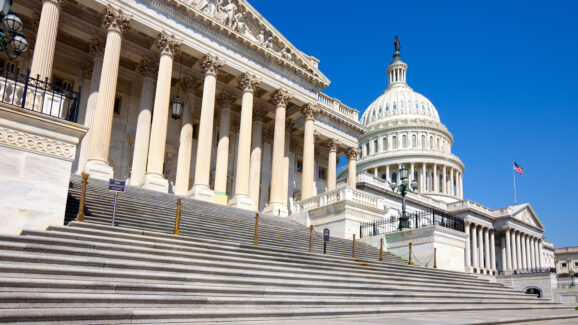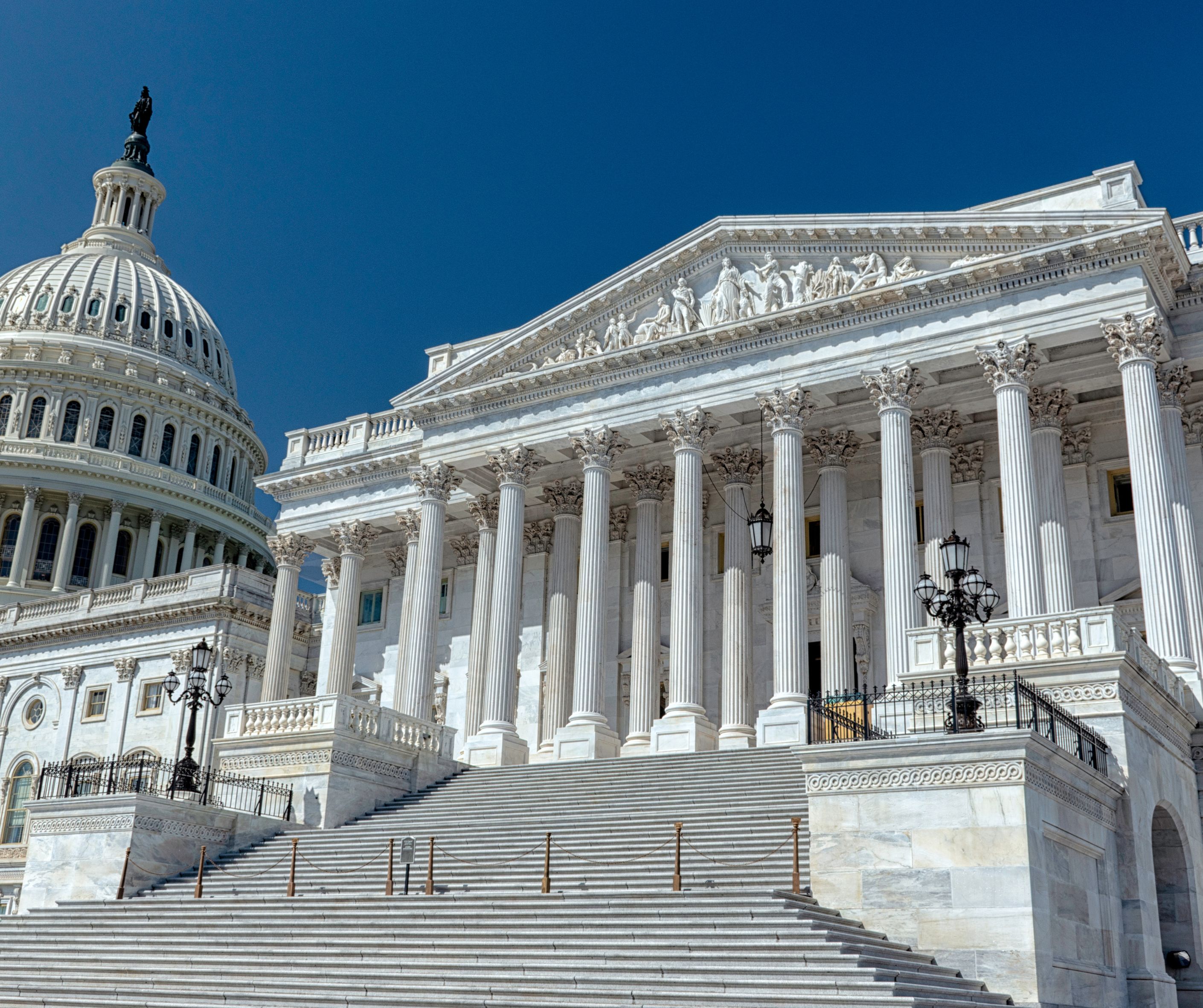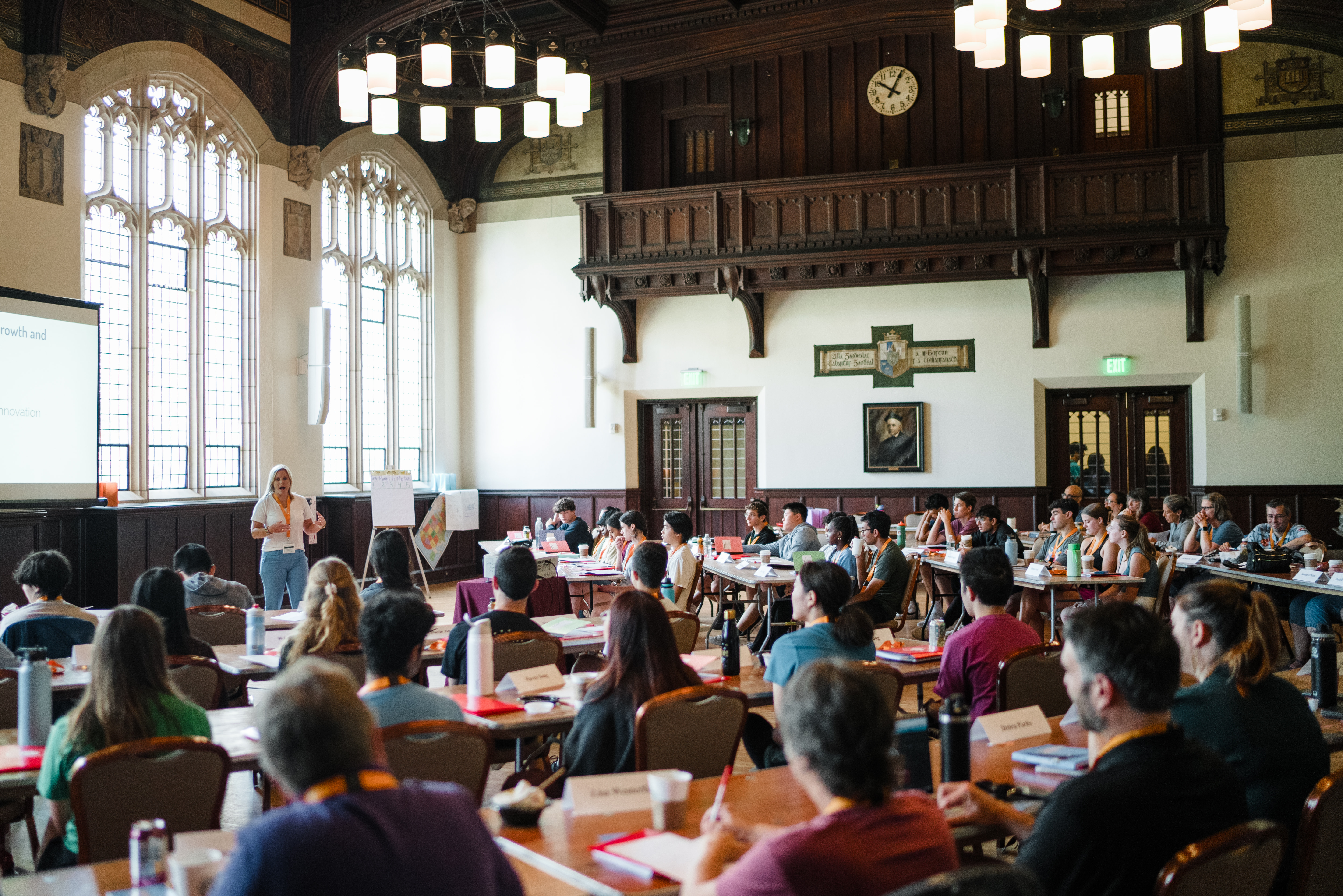Lesson 8: Setting the Rules – Costs and Benefits of Government Action

- >
- Teachers
- >
- Teacher Resources
- >
- Lesson Plans
- >
- Economics for Leaders
- >
- Lesson 8: Setting the Rules &#…
Introduction
This lesson gives students the opportunity to apply the economic way of thinking to the political arena. After exploring differences between private and public choice they will apply public choice theory to understand why “bad economics” often makes for “good politics.”
Objectives
At the end of this lesson, students will be able to:
- Differentiate between rule of law, rule of man and rule of force.
- Use marginal analysis to evaluate government action.
- Describe the characteristics of public goods
- Use public choice theory to explain why government action may result even if the marginal cost is greater than the marginal benefit.
Economic Concepts
| Voluntary exchange | Incentives | Externalities |
| Opportunity cost | Public choice | Special interest groups |
| Taxation | Public goods | Lobbying |
Key Ideas
1. Review:
- Voluntary trade creates wealth.
- The necessary conditions for wealth-creating trade:
- both parties expect to gain;
- both parties are willing to trade at the terms (prices) presented; their participation in the exchange is voluntary; and
- both parties have the authority to transfer the rights to the goods, services or resources involved in the trade; their property rights are clearly defined and secure.
- People’s willingness and ability to engage in wealth-creating exchange depends on the institutional rules of the game established and enforced by government.
2. The rule of law provides an institutional foundation that encourages voluntary trade. Nations where the rule of law is firmly established reap greater benefits from voluntary trade than those without the rule of law.
- Defining and enforcing laws is an important role of government; however the mere existence of laws is not sufficient to establish the rule of law.
- The rule of law exists when the rules that govern behavior and interactions among individuals and groups of individuals apply to both the governed and the governing.
- The rule of man exists when laws are applied at the discretion of the governing.
- Under the rule of force, people own what they can defend. The allocation of goods is in accord with individuals’ ability to manage violence, rather than in accord with the highest-valued uses of those goods.
- Resources are consumed in the process of managing violence and the wealth of society is lower than under the rule of law.
- Examples of the rule of force are found in the illegal drug trade today, for example, in the United States and Mexico. The rule of force is also observed in Zimbabwe, where lawless bands of marauders take land from the farmers who have cultivated it for many years, and in Russia, where force is often used to settle commercial disputes.
- By establishing secure property rights, the rule of law promotes voluntary exchange. When the rule of law does not exist, the resulting uncertainties reduce willingness to trade.
- People living in nations without the rule of law experience lower standards of living and are more likely to be extremely poor.
3. Government provision of goods and services is subject to the same guidelines as private production: it should take place only when marginal benefit exceeds marginal cost.
- The opportunity cost of government spending at the margin is private spending.
- The opportunity cost of government spending on a particular program is the foregone benefit of increased spending on another program.
- For public goods, the marginal benefit of government provision can exceed marginal cost.
- Marginal benefit does not exceed marginal cost for all goods and services provided publicly. Some goods and services provided for the public by government are not public goods in an economic sense.
- Public goods are “non-rivalrous” in consumption and “non-exclusive” in production.
- Non-rivalrous, non-exclusive goods and services are unlikely to be provided privately because it is not profitable to do so when there are incentives for people to be free-riders.
- The “free-rider” problem exists when consumers cannot be excluded and therefore have no incentive to pay for the good or service.
- Because private businesses are unlikely to produce them, public goods the government is the economically efficient provider.
- Non-rivalrous, non-exclusive goods and services are unlikely to be provided privately because it is not profitable to do so when there are incentives for people to be free-riders.
- Publicly-provided goods are paid for by taxes. The opportunity cost of using tax revenue to provide goods and services is the foregone benefits of the next best use (either government or private) of that money.
- Because taxation is involuntary, taxpayers undertake actions to minimize the burden they bear. This is costly and it implies that for government programs to be efficient, they must generate more than one dollar of benefits for each dollar of taxes, because the marginal benefit must also cover the social cost that arises when people try to minimize the burden of the taxes they must pay.
- Technology may change the argument for government production of specific public goods over time.
- The benefits of government provision of goods or services exceed the costs when government is the least cost provider. However, government engages in many activities that do not meet this criterion.
- Government actions may improve the functioning of markets. Government may enact laws against monopolies and cartels to protect open markets and maximize the gains from trade.
- Politicians and government officials respond to incentives. Thus, government actions may also work against the efficient allocation of resources in open markets though regulations and other restrictions (e.g., ban on advertising).
4. Public Choice theory explains that the incentives facing officials and citizens encourage an active role for government in the economy even in the absence of government comparative advantage and make government especially responsive to special interest groups.
- The benefits and costs of specific government activities are not evenly distributed.
- Special Interest Groups and Lobbyists: The benefits of political actions are concentrated and the costs are diffuse.
- Ordinary Citizens: The costs of political actions are concentrated and the benefits are diffuse.
- Elected officials have an incentive to be most attentive to those groups that help to keep them in office – special interest groups, groups of people (such as senior citizens) who are more likely than other to vote, and organizations willing to fund campaigns and political advertising.
- Because the lawful use of force is a role of government, use of that force to reallocate wealth may be inevitable—and costly to society, reducing overall wealth.
- Rules may be necessary to keep government activities limited in the presence of the imbalance between special interest groups and ordinary citizens.
- “Government is the great fiction through which everybody endeavors to live at the expense of everybody else.” Frédéric Bastiat (1801 – 1850)
Ideas To Take Away From This Lesson
- Government facilitates wealth-producing voluntary exchange by establishing and enforcing the rule of law that secures property rights.
- At the margin, the opportunity cost of government spending is private spending.
- Government is the efficient provider of “public goods.”
- The marginal benefits of government taxation and subsidies may outweigh the marginal costs when significant externalities exist.
- The incentive to expand government activities beyond those for which the benefits exceed the costs is explained by Public Choice theory.

Tell Our Elected Officials to Enroll in FTE Programs, Please!
January 30, 2026 Despite last-minute negotiations late this week, President Trump and congressional leaders appear to once again be on…

Foundation for Teaching Economics Opens Student Application for Summer 2026
January 12, 2026 The Foundation for Teaching Economics is pleased to announce that applications for Summer 2026 student programs are…

Making Economics Meaningful for Students
December 19, 2025 The Fund for American Studies’ Liberty and Leadership podcast features FTE’s own Amanda Stiglbauer, a longtime member of our…
